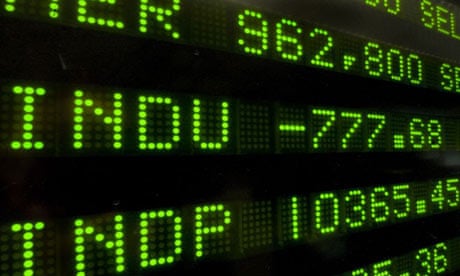Wall Street and sustainability might seem rather odd coupling, especially after the crash of 2008. But the announcement by Morgan Stanley to create a new center of sustainability could be a sign global financiers are getting serious about accommodating clients who want to invest with one hand on the heart and the other on the pocketbook.
Morgan Stanley is setting up a multi-billion dollar Institute for Sustainable Investing to attract those who want to invest profitably, and on a large scale, in renewable energy and more liveable communities – while also shedding carbon-based assets.
"As we rocket to nine billion people on the planet, the problems that we have to solve together as a society are growing with incredible velocity and acceleration and we can only get there if we can drive capital at a major scale to address these issues," said Audrey Choi, the new CEO of the institute, in an interview.
Morgan Stanley's sustainable investing models could include partnerships with public, private and non-profit organizations to build projects that are otherwise languishing from a lack of funds.
"Our clients are increasingly turning their attention to what it takes to secure the lasting and safe supplies of food, energy, water and shelter necessary for sustainable prosperity," Morgan Stanley CEO James Gorman said in a statement.
Four key goals
The initiative will have four main commitments, according to the announcement:
Setting a goal to have $10bn of client funds invested in sustainability assets over the next five years.
Creating new investment products where promoting a positive social or environmental impact are core goals.
* Establishing an annual Sustainable Investing Fellowship program at the Columbia Business School for graduate students to promote the next generation of leaders in sustainable investing. The initiative will be coupled with an internship at Morgan Stanley to help teach graduates about investing in the sector.
Putting in place a $1bn sustainable communities initiative that promotes affordable housing. The plan would involve working with local community groups to help integrate affordable housing with access to health care, healthy food and other vital services.
The Local Initiatives Support Corporation, already working with Morgan Stanley on affordable housing, welcomed their new commitment to funding such projects. "Together, we will be able to help low-income families live better and make their communities stronger and healthier," said corporation president Michael Rubinger.
Shareholder activism
It would be easy to dismiss Morgan Stanley's announcement as a major Wall Street firm boosting its reputation in an industry badly tarnished by the financial meltdown – a debacle fuelled, in part, by an orgy of unsustainable investing in complicated security products.
But the demand for investing in more sustainable assets is coming from a grass-roots level, as clients "have really helped to push us" into this sphere, according to CEO Choi.
"We've seen a real steady increase in interest and curiosity and demand for those kinds of products and so we really feel that it was the right time to step up that commitment to drive towards having the best in class platform out there to help investors find the things they want," she said.
PricewaterhouseCoopers, the consulting firm, said in a 2012 report that sustainability issues are a growing concern for investors, spurring a rise in shareholder activism.
"Investors have begun to recognize that the social and environmental conditions in society can have a direct impact on the business operations of a company and its long-term viability," the report found.
Wall Street's role
This is not the first foray into educating investors on sustainability, of course. The RFK Center for Justice and Human Rights launched a sustainable investing certificate program with The Earth Institute at Columbia University last month.
Environmental activists such as Bill McKibben, the founder of 350.org, and Al Gore have also launched high profile campaigns to veer investors away from unsustainable oil and gas assets, arguing that they are only perpetuating a bubble that will burst in a carbon constrained world.
While Wall Street has undoubtedly aided and abetted massive investments in oil and gas, companies such as Morgan Stanley are now not averse to helping clients shed those assets, according to Choi.
"If they then just want to say: 'Okay I just want to avoid that; help me take it out of my portfolio,' we provide them with products and strategies to enable them to do so."
Ultimately, Choi doesn't believe Morgan Stanley will be the only one on Wall Street providing the pathway to more sustainable investing for clients. But she wants the company to play a lead role in the conversation between clients and advisers and to help prove the case that "you can invest your portfolio wisely and well,"
Russ Blinch is chief scribbler at CopyCarbon.com and a blogger for the Huffington Post

Comments (…)
Sign in or create your Guardian account to join the discussion